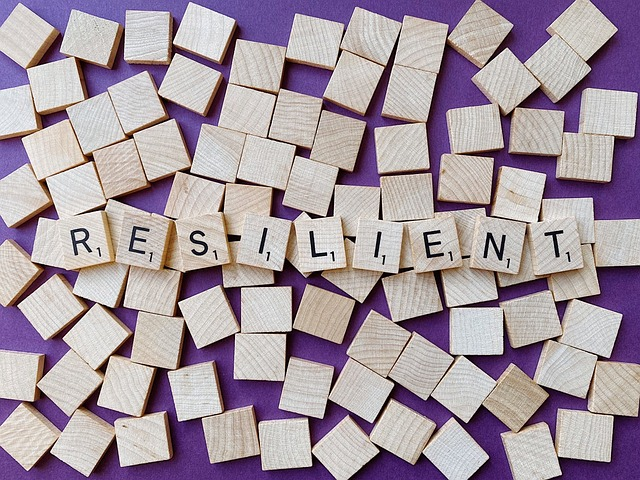Job interviews can be nerve-wracking, and there’s one question that can catch even the most experienced candidates off guard.: “Tell me about a challenge you’ve overcome.” Many get caught up in thinking of challenging situations, which only adds more stress to the situation.
However, it’s a chance to showcase your problem solving skills, resilience, and personal growth, but you only have a few moments to do it justice.
So, how can you answer this interview question in a way that makes you stand out from everybody else? How do you turn a challenging experience into a story that not only answers the interviewer’s question but also showcases you in a positive light? In this blog article, we’ll explore the art of answering the “Tell me about a challenge you overcame” question.
We’ll discuss how to pick the right challenge to talk about, how to tell a great story, and highlight the valuable lessons you learned along the way. By the end, you’ll be confident in your ability to answer these questions on the fly during the interview process.
Let’s get into it.
Why is the ‘Tell Me About a Challenge You Overcame’ a commonly asked question?
Before we dive into how to form your response to the “Tell me about a challenge you overcame” question, let’s first understand why this question pops up so frequently in job interviews. Specifically, what is the hiring manager even looking for?
Assessing Problem-Solving Skills

Employers want to know how you tackle problems and obstacles. Your ability to identify challenges and overcome them is extremely important to employers. Although it may seem like anybody can rehearse an answer to the question, the employers are really looking to see what your problem-solving process involves.
Evaluating Resilience

Resilience is a trait highly prized by employers. They want to see if you can bounce back from setbacks and stay motivated when facing difficulties. Sharing a challenge you’ve overcome demonstrates your capacity to get through tough times.
Revealing Character and Your Values

Your response to this question can reveal a lot about your character and values. How you describe the challenge, the actions you took, and even the challenge you choose to present can provide an insight into you as a person.
Assessing Adaptability
In any work environment, adaptability is crucial. Interviewers want to know if you can handle change and adjust to new situations. Discussing a past challenge can show that you’re open to learning and growing and prove that you’re a good fit for the role.
Cultural Fit
Many companies prioritize cultural fit when hiring. This is often made quite clear within the job description when you apply. Sharing a challenge you’ve faced can offer insight into how well you align with the company’s values and ethos. It helps interviewers determine if you’re a good fit for their team and organization. Questions during an interview are really a chance for you to speak and express yourself. It’s through the way you communicate that employers can gauge how well you align with their cultural fit.
Differentiating Candidates
In a competitive job market, candidates often have similar qualifications on paper. Sharing a story about overcoming a unique challenge sets you apart. It gives you an opportunity to make a memorable impression and leave a lasting positive impression on the interviewer.
What is a challenge you’ve overcome? Questions and variants
While the “Tell me about a challenge you’ve overcome” question is a classic in job interviews, interviewers may not always ask it in those exact words. They might use variants or rephrase the question to assess the same qualities but in a more indirect or creative manner.
Regardless of how interviewers phrase the question, they are ultimately looking for the same core qualities. You will also approach the question in the same manner by thinking of a significant challenge that you face. Lean on examples from your personal life as well as your professional life. If this will be your first job, then think of academic examples as well as personal examples.
Be prepared to adapt your response to different variations of this question, drawing from your experiences to showcase these qualities effectively.
Variations of the “tell me about a challenge you overcame” question
To help you prepare, we’ve curated a list of the common variants and alternative questions that essentially are the same as the overcoming a challenge question.
Take a look below:
Example 1 – “Describe a difficult situation you faced at work or in a team project.”
This question aims to assess your teamwork and problem-solving skills by allowing you to discuss challenges in a professional context.
Example 2 – “Tell me about a time when you had to handle a setback or failure.”
This variant focuses on how you cope with setbacks, specifically your resilience and ability to learn from failures.
Example 3 – “Can you share an example of a time you had to adapt to a sudden change or unexpected circumstances?”
This question assesses your adaptability and how you handle unexpected challenges or changes in your work environment.
Example 4 – “Discuss a situation where you had to meet a tight deadline or handle a high-pressure task.”
This variant assesses your time management skills and how you handle stress. It also looks at whether you can perform under pressure.
Example 5 – “Share a story about a conflict you had with a colleague or team member and how you resolved it.”
This question explores your conflict resolution skills. But it can also be used to assess whether you’re a good cultural fit, specifically when it comes to your interpersonal abilities.
Example 6 – “Describe a project or initiative where you faced resistance or pushback from others. How did you navigate this situation?”
This question assesses your ability to influence and persuade others, as well as your determination in achieving goals.
Example 7 – “Can you talk about a time when you had to step out of your comfort zone to achieve a goal?”
This variant assesses your willingness to take risks and embrace change. This is another question that will help you show that you would make a great cultural fit, especially if you can emphasize your willingness to achieve personal and professional growth.
Example 8 – “Discuss a situation where you had to make a tough decision. How did you arrive at your choice, and what were the outcomes?”
This question allows you to describe your decision-making process and how your ethics play a part in that process. Additionally, it can showcase how you’re able to make tough choices to get things done.
Example 9 – “Can you share a story where you had to manage conflicting priorities or demands on your time?”
This question aims to understand how you prioritize tasks when faced with competing demands and deadlines. Many jobs will have tight deadlines, and they need to make sure you won’t crumble under pressure.
Example 10 – “Describe a situation where you had to learn a new skill or adapt to new technology to accomplish a task or project.”
This variant examines your adaptability and willingness to embrace new tools and knowledge.Technology, software, and tools are always changing, so companies need to know that you’re able to learn new skills and knowledge quickly.
How to answer the “tell me about a challenge you overcame” question
Answering these questions requires more than just stating a big challenge you had at a previous job. This question is an example of a behavioral interview question. They’re meant to assess your skills and ability to handle stress. So, you need to answer them appropriately. To make sure you do this, use the STARR framework.
Here’s the framework in action below:
Situation (S):
Start by describing the context in which the challenge occurred. Here, you can provide the background information about the project, team, or circumstances.
Task (T):
Next, you move on to explaining the specific challenge or task that you were faced with. Clearly outline what needed to be achieved or resolved.
Action (A):
The next step is to list the actions you took to address the challenge. Describe the steps you followed, your decision-making process, and your contributions to resolving the situation. Take them through your thought process and how you arrived at the result. Don’t forget to emphasize the skills you relied on, such as leadership or teamwork, when relevant.
Result (R)
Here, you should discuss the positive outcome of your actions. Explain what happened as a result of your efforts. Providing quantifiable or measurable results will have the best impact here.
Reflection (R)
Finally, share insights gained from the experience and how it influenced your future actions. You can also highlight the positive impact on the project or team.
Now, to help you brainstorm ideas for your response, we’ve provided some examples for each part of the framework.
10 Examples and Sample Answers
1- Meeting tight deadlines
Describe a task with a particularly tight deadline that you successfully completed.
E.g.
Situation: I was working as a marketing coordinator, and we had a last-minute opportunity to pitch a major client.
Task: We had only 48 hours to prepare a comprehensive presentation.
Action: I rallied the team, delegated tasks efficiently, and worked late into the night to ensure all elements were ready.
Result: We not only met the deadline but also secured the client, resulting in a significant boost in revenue.
Reflection: This experience reinforced the importance of teamwork and the ability to stay calm under pressure in getting the task done.
2- Technical obstacles
Discuss a situation where you encountered technical difficulties or obstacles and how you used your expertise to overcome them.
E.g.
Situation – During a software development project, we encountered a critical bug causing system crashes.
Task – Identifying the root cause of the bug was crucial to project success.
Action – I conducted an in-depth code review, collaborated with the development team, and eventually pinpointed the issue.
Result – We implemented a solution, preventing further disruptions and ensuring the project’s success.
Reflection – This experience helped me to understand the importance of persistence and effective collaboration in problem-solving. It also taught me to approach complex technical challenges with patience and thorough analysis and allowed me to have confidence in my abilities.
3-Conflict resolution
Share a story about how you resolved a conflict within a team or with a colleague, demonstrating your interpersonal skills and ability to work collaboratively.
E.g.
Situation: In a cross-functional team project, tensions arose between two team members with different working styles.
Task: Resolve the conflict and improve team collaboration.
Action: I facilitated a candid discussion, allowed each person to voice their concerns, and mediated effectively.
Result: The team found common ground, established clear communication channels, and achieved a successful project outcome.
Reflection: This experience underscored the significance of communication, empathy, and conflict resolution skills. It taught me that addressing interpersonal conflicts directly and with sensitivity can lead to stronger team cohesion and better outcomes.
4-Budget issues
Talk about a project where you had to work within tight budget constraints, emphasizing your ability to allocate resources effectively and find cost-saving solutions.
Situation: I was assigned to a marketing project with a limited budget.
Task: To maximize resources and complete the project successfully.
Action: I conducted a thorough cost analysis, negotiated with suppliers, and reallocated funds strategically.
Result: We not only stayed within budget but also achieved all project objectives.
Reflection: This experience emphasized the importance of fiscal responsibility and resource optimization. It taught me to be creative in finding cost-effective solutions and to be vigilant in managing budgets.
5 – Adapting to change
Describe a scenario in which you had to adapt to a significant change, such as a new software system, management style, or company strategy, highlighting your adaptability and resilience.
Situation: Our company implemented a new CRM system.
Task: Ensure a smooth transition and adoption of the new system within the team.
Action: I organized training sessions, provided one-on-one support, and created user-friendly guides.
Result: The team embraced the new system, leading to improved efficiency and customer service.
Reflection: This experience reinforced the importance of adaptability and proactive change management. It also taught me the value of effective communication when introducing significant changes in the workplace.
6- Handling a high-pressure situation
Discuss a high-pressure situation, like a crisis or emergency, where you maintained composure and successfully managed the situation.
Situation: A supply chain disruption threatened to delay a product launch.
Task: Ensure the product launch proceeded on schedule.
Action: I coordinated with the supply chain team, identified alternative suppliers, and reorganized logistics.
Result: The product launched on time, maintaining customer trust.
Reflection: This experience highlighted the significance of maintaining composure under pressure and the importance of contingency planning. It reinforced my belief in the power of collaboration and adaptability during crises.
7- Overcoming personal challenges
Share a story about a personal challenge you faced, such as a health issue, and how you balanced it with your professional responsibilities.
Situation: While pursuing my degree, I faced a family health crisis.
Task: Balance academic responsibilities with personal challenges.
Action: I managed coursework effectively, communicated with professors, and arranged for support from classmates.
Result: I maintained a strong academic record achieving XYZ
Reflection: This experience taught me resilience and time management. It also underscored the importance of seeking help and communicating openly when facing personal challenges.
8- Improving team dynamics
Describe a situation where you improved team dynamics or morale, emphasizing your leadership and teamwork skills.
Situation: In a team with communication issues, I took the initiative to organize team-building activities.
Task: Improve trust and collaboration within the team.
Action: I facilitated team-building activities, fostered open dialogue, and clarified roles and responsibilities.
Result: Team dynamics improved, resulting in more efficient project execution.
Reflection: This experience reinforced the value of strong leadership, proactive communication, and investing in team development. It also highlighted the positive impact of a collaborative and cohesive team.
9- Customer service challenge
Discuss a challenging customer service situation, illustrating how you turned a dissatisfied customer into a satisfied one through effective communication and problem-solving.
Situation: I encountered an irate customer who had received a damaged product.
Task: Resolve the customer’s issue and maintain customer satisfaction.
Action: I listened empathetically, offered a swift resolution, and ensured a replacement product was shipped immediately.
Result: The customer became a loyal advocate and referred several new clients.
Reflection: This experience emphasized the importance of customer-centricity and effective problem-solving in customer service. It also taught me that going the extra mile can turn a negative situation into a positive one.
10 – Achieving a sales target
Talk about a time when you had to meet or exceed a challenging sales target, showcasing your sales and negotiation abilities.
Situation: I was given an ambitious sales target for a slow-selling product line.
Task: Meet or exceed the challenging sales target.
Action: I implemented a targeted marketing campaign, identified potential clients through market research, and fine-tuned my sales pitch.
Result: I not only met the target but exceeded it by 20%, becoming the top-performing salesperson in the quarter.
Reflection: This experience reinforced the importance of strategic planning, persistence, and adaptability in sales. It also highlighted the positive impact of data-driven decision-making in achieving sales goals.
Bottom Line
In a job interview, answering the “Tell me about a time you overcame a challenge” question shouldn’t be daunting. Instead, view it as an opportunity to highlight your unique skills through your real-life examples of both your personal and professional experience.
Finally, before the big day, brainstorm a collection of stories from your life and career that showcase your ability to overcome challenges. Having these stories fresh in your head will make answering the question much easier..
While you want to be prepared, don’t fall into the trap of sounding too rehearsed. Practice your responses, but let them flow naturally within your interview answer. Think of it as a friendly chat rather than a script you’re reeling from.
Finally, make sure your response leaves a lasting impression by adding your own personal humor. Don’t be afraid to select a unique challenge as long as you can apply the STARR format while aligning the response to the company culture, you’ll be fine.
Good luck with the interview!
Also, feel free to browse the rest of our site for more informative articles on the world of employment.

